The first journalists in Vietnam's history
On the 100th anniversary of the Vietnamese Revolutionary Press Day (June 21, 1925-2025), let’s go back in time to find the original journalists of the S-shaped country and learn more about their indelible marks.
THE HANOI TIMES — The emergence of chu quoc ngu (Romanized Vietnamese scripts) marked a turning point in the history of Vietnam’s press and those who greatly promoted the language are considered the first journalists of the country that was under the influence of classic Chinese, chu nom (Sino-Vietnamese scripts), and French until the late 19th century.
They made written language more accessible to a wider public.
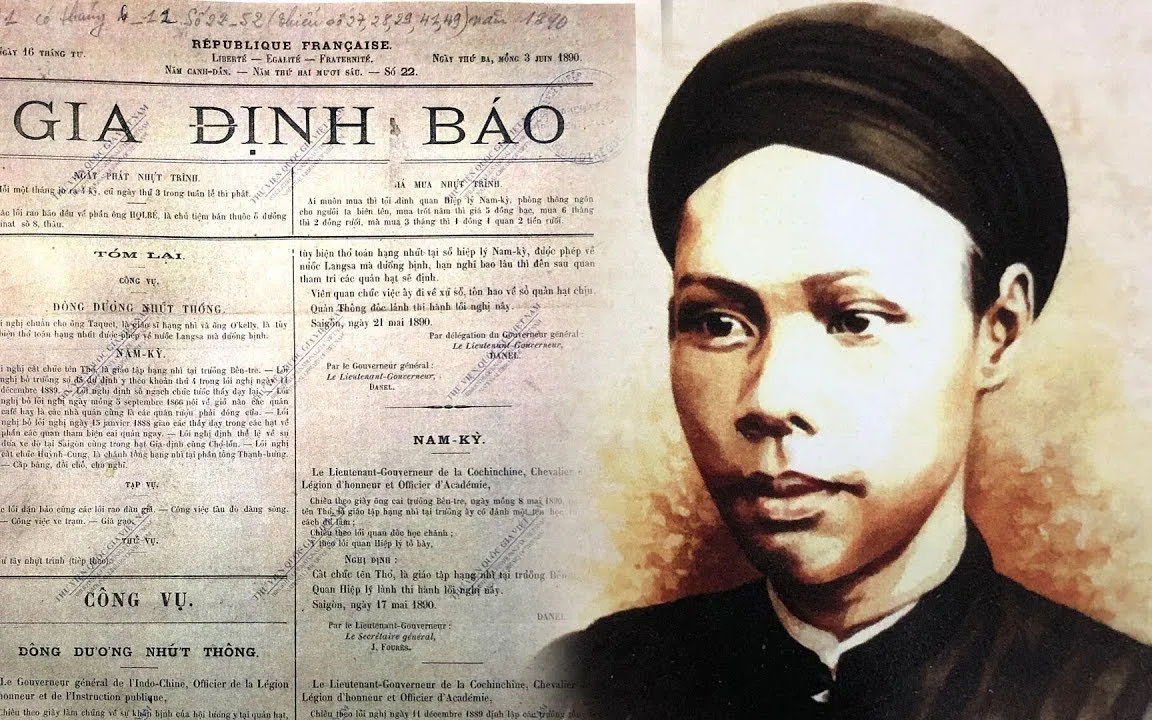
The first Vietnamese journalist Truong Vinh Ky and his newspaper Gia Dinh.
Pioneering journalists such as Truong Vinh Ky, a scholar who championed the modern Vietnamese script, and Nguyen Van Vinh, a translator of Western literature in the early 20th century, were among the first to recognize its power.
Through publications such as Gia Dinh Bao or Gia Dinh Newspaper, the first Vietnamese newspaper published in Romanized Vietnamese script in 1865, or Dong Duong tap chi (Indochina Review), these figures laid the groundwork for a new era of journalism. They used the Latin scripts to inform and inspire a sense of identity and dialogue in a country on the brink of profound social and political change.
Truong Vinh Ky - the very first journalist of Vietnam
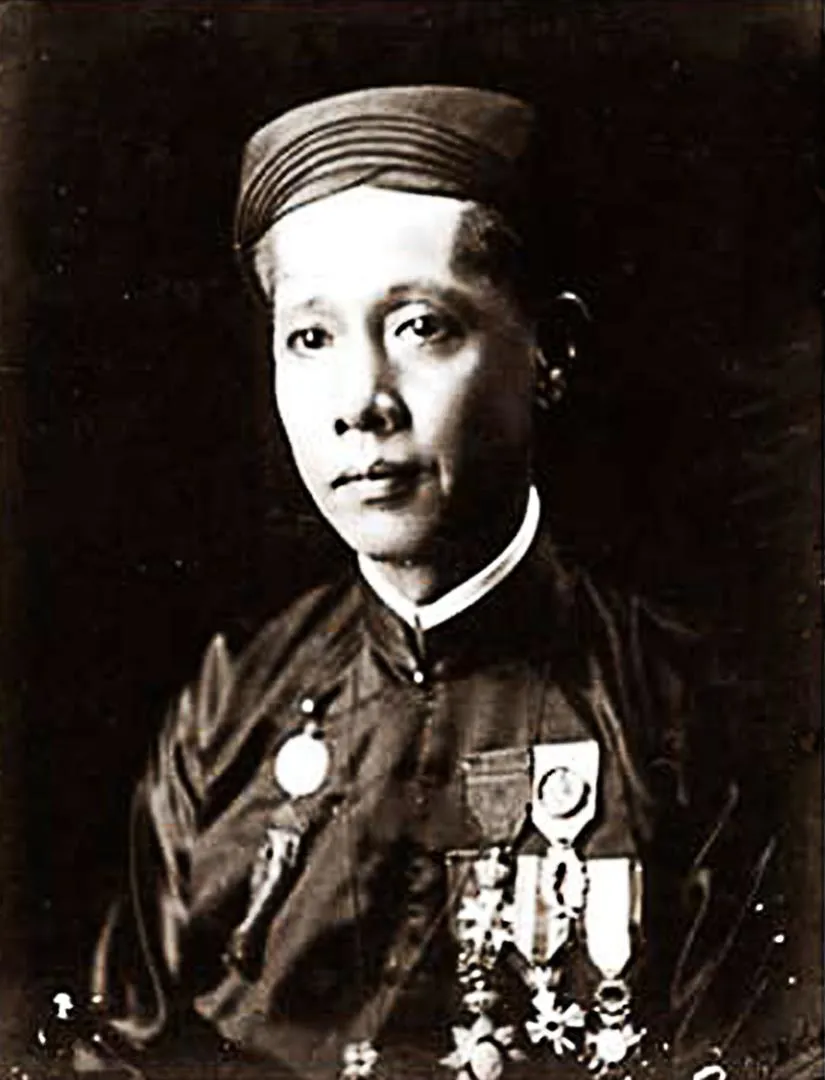
Vietnamese journalist Truong Vinh Ky is a Vietnamese scholar whose publications contribute to the understanding between colonial Vietnam and Europe. File photo
Truong Vinh Ky (1837-1898) was considered Vietnam's first journalist. The scholar was the first editor-in-chief of the Gia Dinh Newspaper. Born on December 6, 1837 in Cai Mon Market, Vinh Thanh Village, Minh Ly Canton, Tan Minh District, Vinh Long Province (now Cho Lach District, the Mekong Delta Province of Ben Tre).
Born as Truong Chanh Ky, alias Si Tai, he later adopted the name Jean Baptiste Petrus Truong Vinh Ky. Commonly known as Petrus Ky, he came to Saigon as a student. Ky was the third child of a provincial military officer, Truong Chanh Thi, who was often treated with suspicion by the king and the court because his family was Catholic.
In 1874, he was named Professor of Oriental Languages and honored as one of the 18 “distinguished global scholars,” on par with the most illustrious names of the Western world at that time. In addition, he wrote in Gia Dinh Newspaper on April 15, 1867: “This script is not difficult; with dedicated study for a month or two, one can master it.” Having existed for more than 44 years, from April 1865 to January 1, 1910, Gia Dinh Newspaper went down in history along with journalist Truong Vinh Ky, serving as evidence of the talent, journalistic effort, and linguistic creativity in media and press activities by the Vietnamese people 155 years ago.
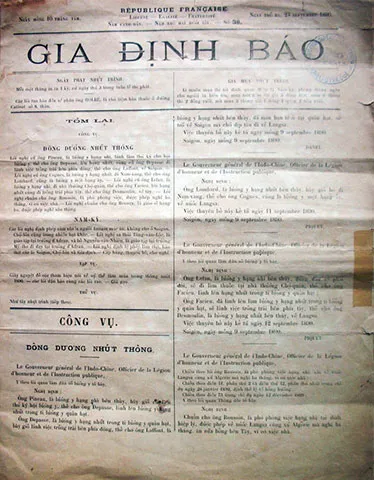
A copy of the Gia Dinh Bao. Archive
With his distinguished manners, profound knowledge, and unique writing style, Ky quickly rose to fame in the literary world. He founded and served as editor-in-chief of other path-breaking Vietnamese journals while also working as a columnist for many others. With great dedication, Ky laid the foundation for the comprehensive development of Vietnamese journalism with its large scale, coherence, variety of styles, convenience, and friendly approach to readers.
His prodigious writing skills resulted in 118 works, including studies, anthologies, and translations. Fluent in 26 languages, Petrus Ky was called "the only scholar in Indochina" by Jean Bouchot, a French academic.
He was most productive when he became the editor-in-chief of Gia Dinh Newspaper. Since its first issue on April 15, 1865, Gia Dinh Newspaper has provided a foundation for local journalism during its 44 years of existence. It was also the first newspaper in Vietnam to carry advertisements.
Suong Nguyet Anh - unfortunate, ascetic female journalist

A rare portrait of journalist Suong Nguyet Anh.
Suong Nguyet Anh, whose birth name was Nguyen Thi Khue, was born on February 1, 1864 in An Duc Commune, Ba Tri District, the southern province of Ben Tre. She was the fourth child of the patriotic poet Nguyen Dinh Chieu. Her other pen names include Xuan Khue, Nguyet Nga, and Nguyet Anh.
In 1917, she was invited by a group of patriotic scholars to become the editor-in-chief of Nu Gioi Chung (Women's Bell), the first Vietnamese feminist newspaper.
With its office at 155 Taberd Street, Saigon (now Nguyen Du Street, District 1, Ho Chi Minh City), "Nu Gioi Chung" aimed to empower women's rights, targeting workers, farmers, and merchants, and especially to promote the role of women in society. The first issue of the newspaper was published on February 1, 1918.
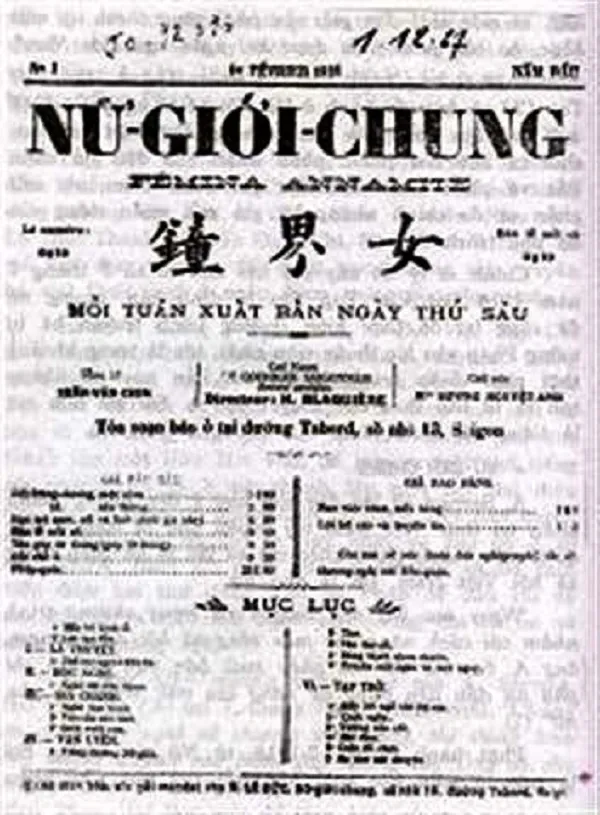
A page of the Nu Gioi Chung Newspaper.
In the history of Vietnamese journalism, Khue was the first woman to enter the profession. Beautiful, talented, and pursued by many suitors, Khue remained faithful after her husband's untimely death, raising their then two-year-old child alone. Her nom de plume, Suong Nguyet Anh, means Nguyet Anh (the bright moon) with the word "suong" (widow) added.
The Nu Gioi Chung was so enthusiastically supported by readers that the French colonialists shut it down after 22 weeks.
Hoang Tich Chu - a shooting star
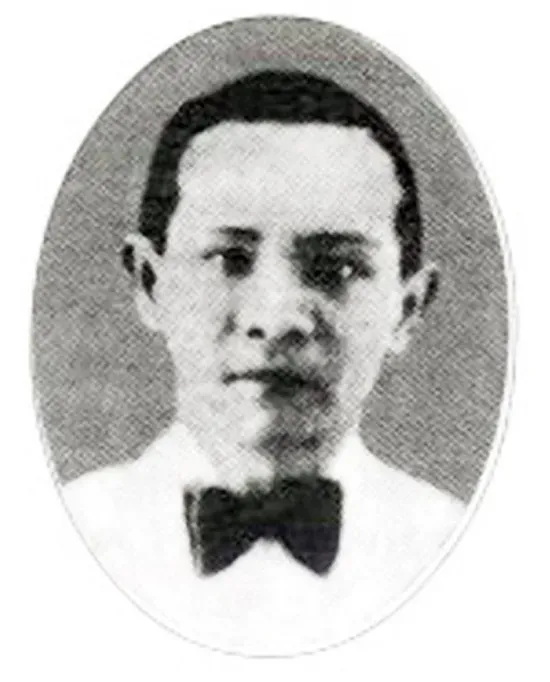
Portrait of the journalist Hoang Tich Chu (1897-1933)
He was called "a shooting star" because his journalistic career lasted only a few years. Hoang Tich Chu (1897-1933) is considered the first journalist with training in France and also the first person to boldly bring about a revolution in journalism in Vietnam, through both concepts and practical activities.
Chu served as an editor-in-chief and played a key role in four famous newspapers: Khai Hoa (Civilizing), Ha Thanh Ngo Bao (Hanoi Midday Newspaper), Dong Tay (East West), and Thoi bao (Times). He initiated reforms in local journalism with a straightforward and uncomplicated writing style that contrasted with the prevailing clichéd style laden with classical references.
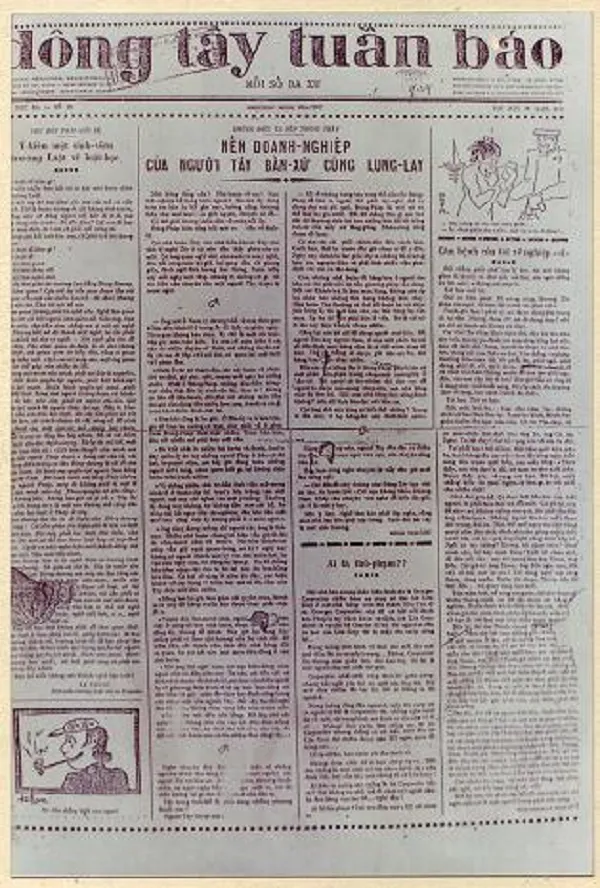
A copy of the Dong Tay Tuan Bao/East West Weekly Newspaper.
It can be said that Chu's innovations have brought about important changes in Vietnamese journalism. One newspaper commented: "Although there may be divergent views on Hoang Tich Chu, when mentioning him and the newspapers he worked on, especially East West Weekly Newspaper, the positive impact of 'Hoang Tich Chu and East West Weekly Newspaper' on the Vietnamese press scene at that time and in the following decades is undeniable. He deserves the title of 'the first person to reform Vietnamese journalism.'











